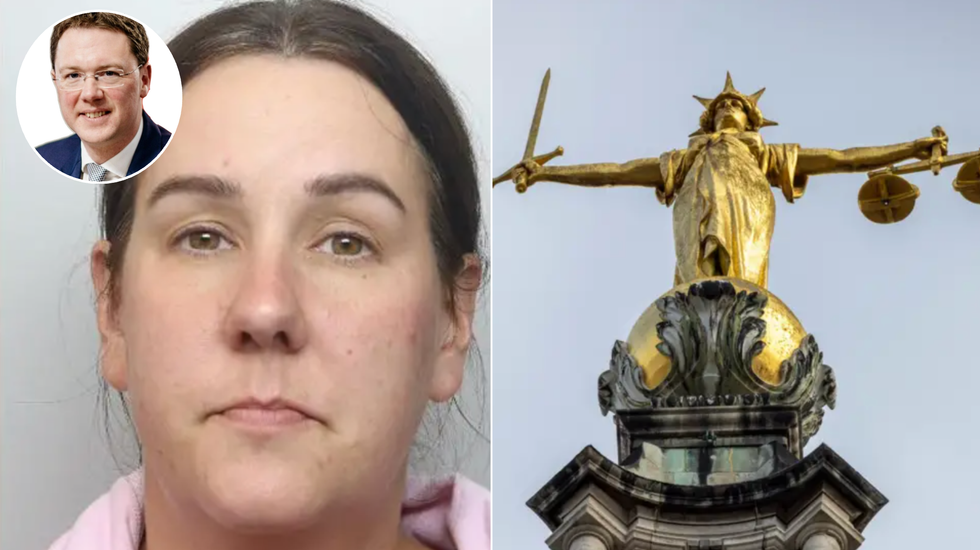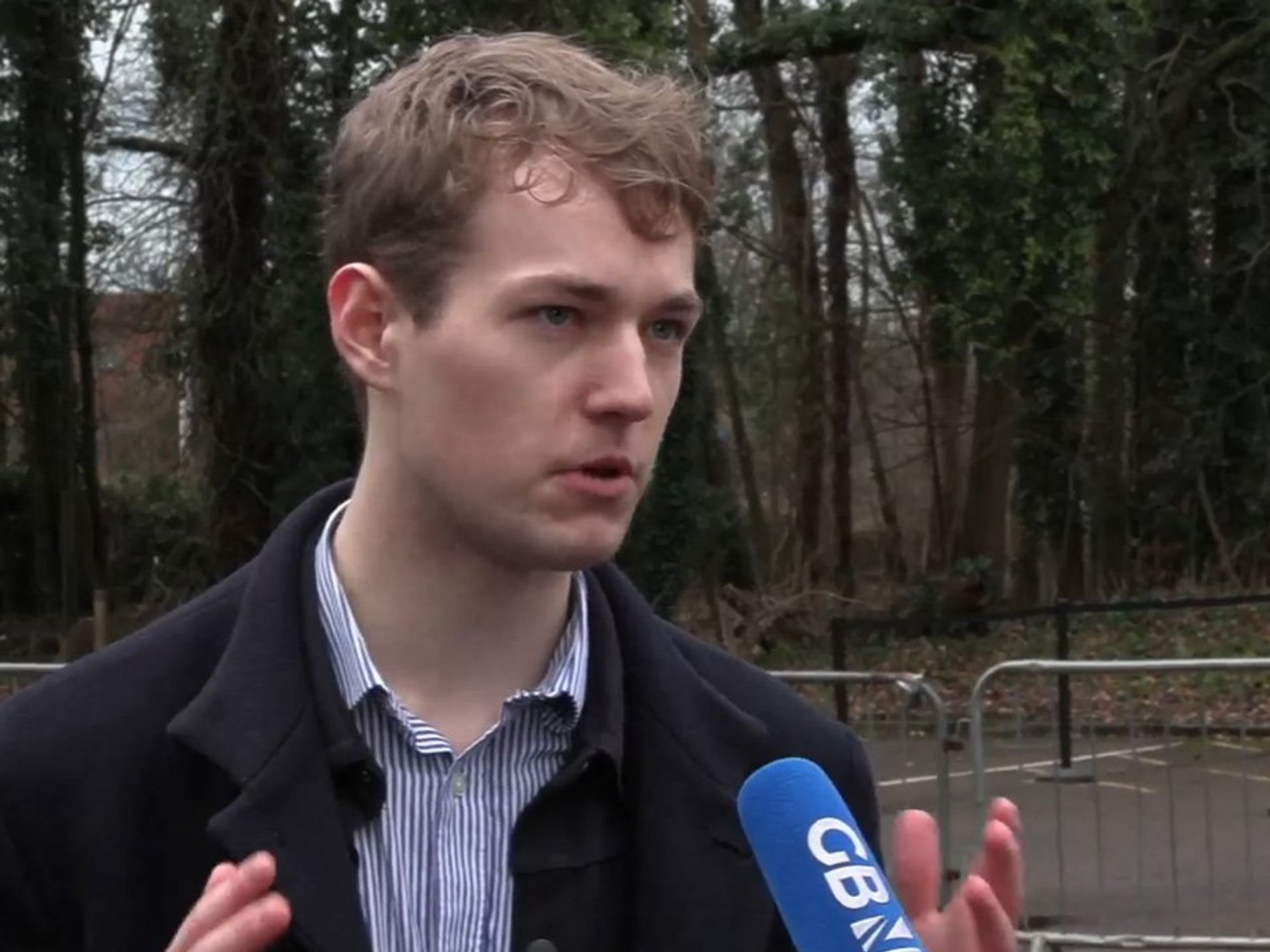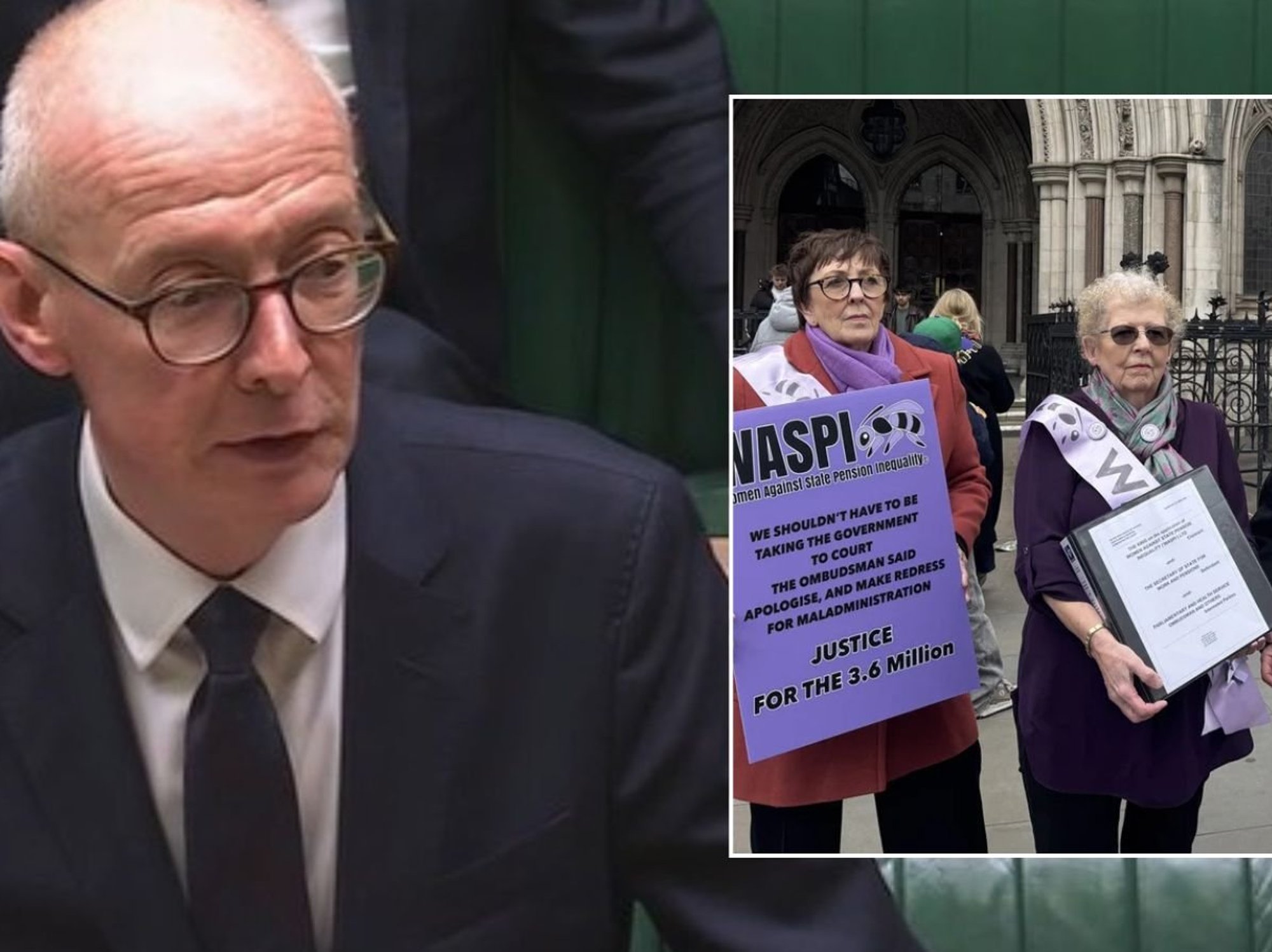While Lucy Connolly languished, a far more sinister plot was underway to capture our courts - Robert Courts

GB
The Sentencing Council's floated guidelines would have chipped away at the fundamental bedrock of our justice system, writes the former Solicitor General for England and Wales
Don't Miss
Most Read
Trending on GB News
“One law for them, another for the rest of us.” That’s the charge levelled at Britain’s justice system, from policy to police and even our world-respected court system.
Growing numbers believe the charge, and the corrosive effect of such a feeling should worry all who care about British justice and the rule of law.
The phrase “two-tier justice” is very much the phrase of the moment, because people see what looks like selective punishment and indulgence, where outcomes depend not on what you did but who you are, what you believe, and how loudly your allies shout.
Take the case of Lucy Connolly. She was jailed for what was unquestionably a vile and reckless tweet in the aftermath of the Southport murders. The message was stupid, offensive, incendiary – but she was given 31 months inside, an extraordinary sentence for a few words on social media with minimal effect. Released early, she now brands herself a “political prisoner”.
That may be pushing it – Starmer, for all his manifest faults, neither convicted nor sentenced her – but the appearance of this case has struck a nerve.
Many look at the severity of her punishment and see the heavy hand of the state coming down harder on one side of the political spectrum.
Never forget the importance of context: we live in a world of numerous rulings of immigration judges making extraordinary decisions to allow people to stay in the country for spurious reasons.
Set against this background, the public has a growing feeling of a progressive elite that does not administer justice – whether criminal or civil – impartially, but upon the basis of who you are and what you believe.
 While Lucy Connolly languished, a far more sinister plot was underway to capture our courts - Robert Courts |
While Lucy Connolly languished, a far more sinister plot was underway to capture our courts - Robert Courts | Northamptonshire Police/Getty Images
The feeling is that if you’re concerned about immigration, you are, in the eyes of the elites, “a bad person” who must be punished for holding “incorrect” views.
Nor is this confined to the outcome of trials. This spring, the Sentencing Council floated guidelines encouraging courts to consider ethnicity, gender, and social background in pre-sentence reports.
This is, in plain English, a move towards softer treatment depending on who you are. Parliament was forced to intervene, rightly insisting justice must be - as is the statue outside the Courts of Justice - blind.
But the fact that such a policy was even contemplated by those who should know better shows how far “equity” has been allowed to chip away at the utterly fundamental principle of equality before the law.
And then there’s policing. “Two-tier policing” is now common talk. For months, anti-Israel marches – too often spilling into outright antisemitism – have rolled through London unchecked.
Compare that to the swiftness with which right-wing demonstrators are rounded up, the severity of riot sentences in the wake of Southport – or the effective decriminalisation of middle-class drug use. Communities notice. They ask: why one rule here and another there?
And everyday life shows the same imbalance. Drift a few miles over an unpopular, unsupported, politically motivated “environmental” 20 mph zone in your rush to work after dropping the kids off at school, and a fine plus penalty points seems to have arrived by the time you get home. Yet report a break-in, or watch antisemitic chants roll unchecked through the city, and you’re met with silence.
The system only seems to move when citizens step in, as commuters did recently on a packed Tube when a man exposed himself in front of children.
He was clearly in crisis – he was later sectioned under the Mental Health Act - but those commuters are now under investigation for alleged assault, while the offender went unchecked until ordinary citizens intervened.
What kind of system jumps to penalise bystanders for defending basic decency? And what kind of person will step in to defend their community if that is the likely result?
That’s the heart of the charge: the state won’t protect the public - but it sure will punish them if they try to fill the gap by protecting themselves.
This is dangerous ground. If people cease to believe the justice system is even-handed, they will cease to respect it. Once this idea gets going, it doesn’t really matter if the system is even-handed or not. Justice not only has to be done but has to be seen to be done.
And when respect for the law evaporates, order itself collapses. Equality before the law – from Magna Carta onwards – is not a luxury. It is the bedrock of our civilisation; possibly the greatest of the many gifts our extraordinary country has given the World.
Britain must decide. Do we want police officers and the courts enforcing the law without fear or favour? Or do we want a patchwork of outcomes bent by identity and ideology? The public knows the answer. It is time the elite establishment remembered it.
If Britain is to remain a civilised nation, justice must be blind once again. It must be seen to be so.










